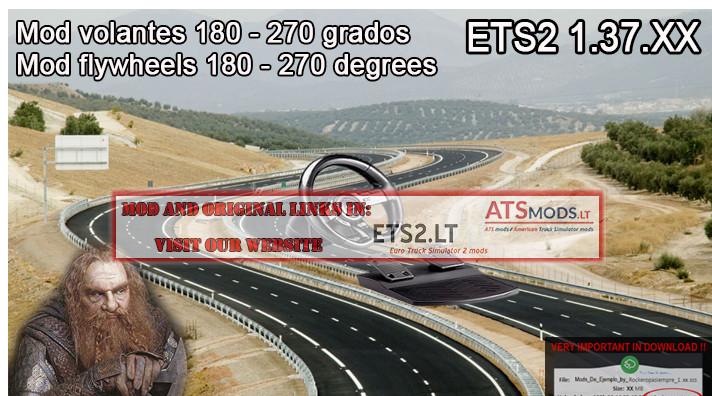

If all participants do not have matching versions of said mods installed, the resulting session could potentially be plagued with missing truck models, broken sound, and potentially game-crashing bugs.

Understandably, accommodating a potentially endless amount of third-party mods within the confines of a multiplayer game can be complicated. Players have been producing custom truck parts, paint jobs, sound overhauls, maps, and much more. The modding community has been an integral part of these games’ success over the years. The addition of support for third-party mods within the convoy system will be a godsend for dedicated players of the popular long-haul trucking sims. SCS, the developer behind both American Truck Simulator and Euro Truck Simulator 2, took to their Steam Community portal to announce the news of today’s update. With the release of today’s 1.42 patch for both truck titles, convoy participants can now use mods when playing with their friends. While the initial rollout of multiplayer support (known in-game as convoys) was very much welcomed by the community, it came with the caveat that no modifications could be used. This can be done using the following command (use the correct shortname instead of !):Įcho 'ATTRS="c294", RUN+="/usr/local/bin/ltwheelconf -wheel -nativemode -range 900"' | sudo tee -a /etc/udev/rules.d/90-logitech-wheel.One of the most exciting developments in PC gaming this year was the introduction of official multiplayer support for both American Truck Simulator and Euro Truck Simulator 2. It is possible to add a rule to UDEV to automatically invoke LTWheelConf when the steering wheel is connected. To test and calibrate the steering wheel outside ETS2 you can use jstest-gtk Add UDEV rule

Now you can configure the steering wheel directly from Euro Truck Simulator 2. $ sudo ltwheelconf -wheel DFGT -nativemode -range 900 -autocenter 0 -rampspeed 0 Set native mode, disable autocenter and set wheel rotation range of 900 degrees in one call: $ sudo ltwheelconf -wheel G25 -autocenter 0 -rampspeed 0 $ sudo ltwheelconf -wheel DFP -autocenter 100 -rampspeed 1 $ sudo ltwheelconf -wheel G25 -nativemode You should now have an executable named ltwheelconf. Sudo apt-get install libusb-1.0-0-dev git Get some dependencies (for Ubuntu 13.04 x86) You can easily compile LTWheelConf using the following commands: set wheel to "native" mode (support separate axes and clutch pedal, H shifter, full 900 degree rotation).

Through the tool LTWheelConf it is possible get to fully working on Linux (separate axes, full wheel range, clutch pedal, H-shifter) the following Logitech steering wheels:


 0 kommentar(er)
0 kommentar(er)
